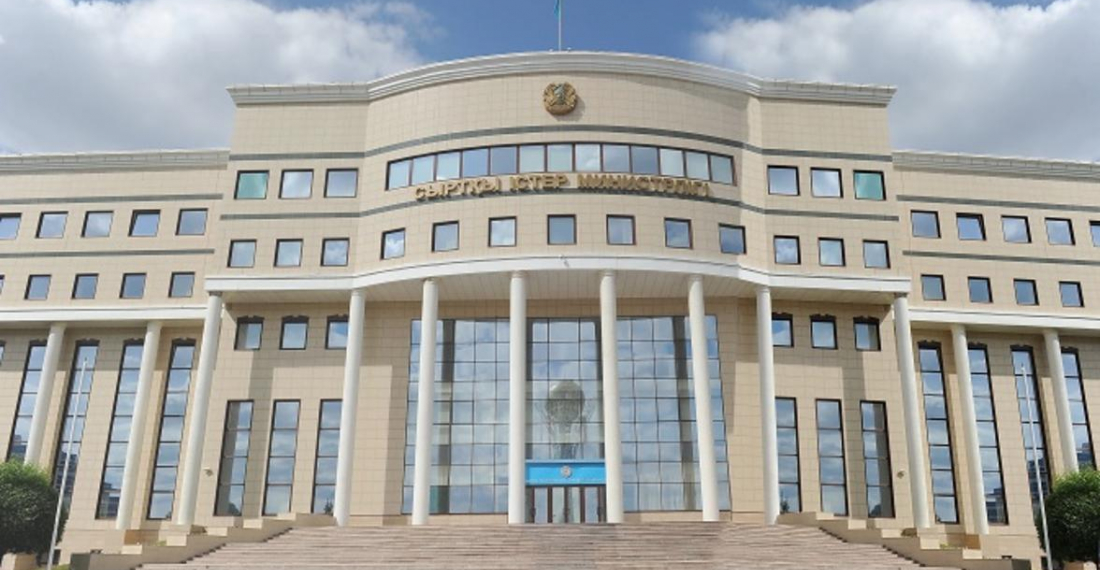The government of Kazakhstan, in a statement issued on Saturday (5 June) rebuffed suggestions that the Eurasian Economic Union (EAEU) may respond jointly to Western sanctions against some of its members.
The idea of such a joint response was raised last week by Russian deputy foreign minister, Alexander Pankin, who said that the Eurasian Economic Union (EAEU), which brings together Belarus, Kazakhstan, Russia, Armenia and Kyrgyzstan, was working on a “consolidated response” to Western sanctions against some of its members. This was in reference to new sanctions imposed by the EU and the US against Russia and Belarus, including a recent EU decision to ban Belarusian airplanes from flying over EU airspace or landing in EU countries.
However, the foreign ministry of Kazakhstan, in a terse statement issued on Saturday, dismissed the suggestion, insisting "that the integration processes within the EAEU are of a purely economic nature", and reiterating that Kazakhstan was against "the politicization of the association".
The statement in full said:
"According to the Treaty on the Eurasian Economic Union, signed on May 29, 2014, the purpose of the association is to ensure freedom of movement of goods, services, capital and labor, to create conditions for the stable development of the economies of the member states in order to improve the well-being of their peoples.
"Kazakhstan adheres to the position that the integration processes within the EAEU are of a purely economic nature. Traditionally, we note the unacceptability of endowing the bodies of Eurasian integration with unusual functions, we oppose the politicization of the association.
"In the context of discussing initiatives that go beyond the subject of regulation of the Treaty on the EAEU, including the application of retaliatory measures to sanctions actions of third countries, we proceed from the assumption that Western sanctions are based primarily on political motives and are directed against individual states, and not the entire EAEU.
We note that the Republic of Kazakhstan does not conduct any negotiations on "consolidated measures" of the EAEU countries in response to sanctions from other states. In working with partners in Eurasian integration, we can only talk about joint actions to prevent the negative impact of such sanctions on the socio-economic development of our states."
related content on commonspace.eu: Opinion: Kazakhstan, Central Asia's giant, is stirring and the Russians are not amused






